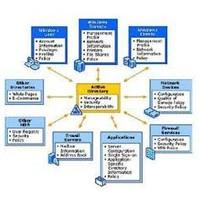Efficient emergency response systems are crucial for smart cities. But their implementation is highly challenging, particularly in regions like Chad where infrastructural constraints are prevalent. The urgency for optimized response times and resource allocation in emergency scenarios is magnified in these contexts, yet existing solutions often assume robust infrastructure and uninterrupted connectivity, which is not always available. Most of the time, they are based on system architectures pre-designed for other purposes. This paper addresses these critical challenges by proposing a comprehensive system architecture that integrates Field Programmable Gate Arrays (FPGAs), Dijkstra's algorithm, and Edge Computing. The objective is to enhance emergency response through accelerated route planning and resource allocation, addressing gaps left by traditional cloud-based systems. Methodologically, key characteristics of the desired system are identified, then its components are described and their integration is explained; the system leverages FPGA-based computations and a distributed implementation of Dijkstra's algorithm to compute the shortest paths rapidly, while Edge Computing ensures decentralized and resilient processing. A theoretical analysis highlights promising improvements in response times and resource management. The proposed system architecture not only enhances emergency response efficiency but is also adaptable to infrastructural constraints of Chadian-like environments.
翻译:暂无翻译





